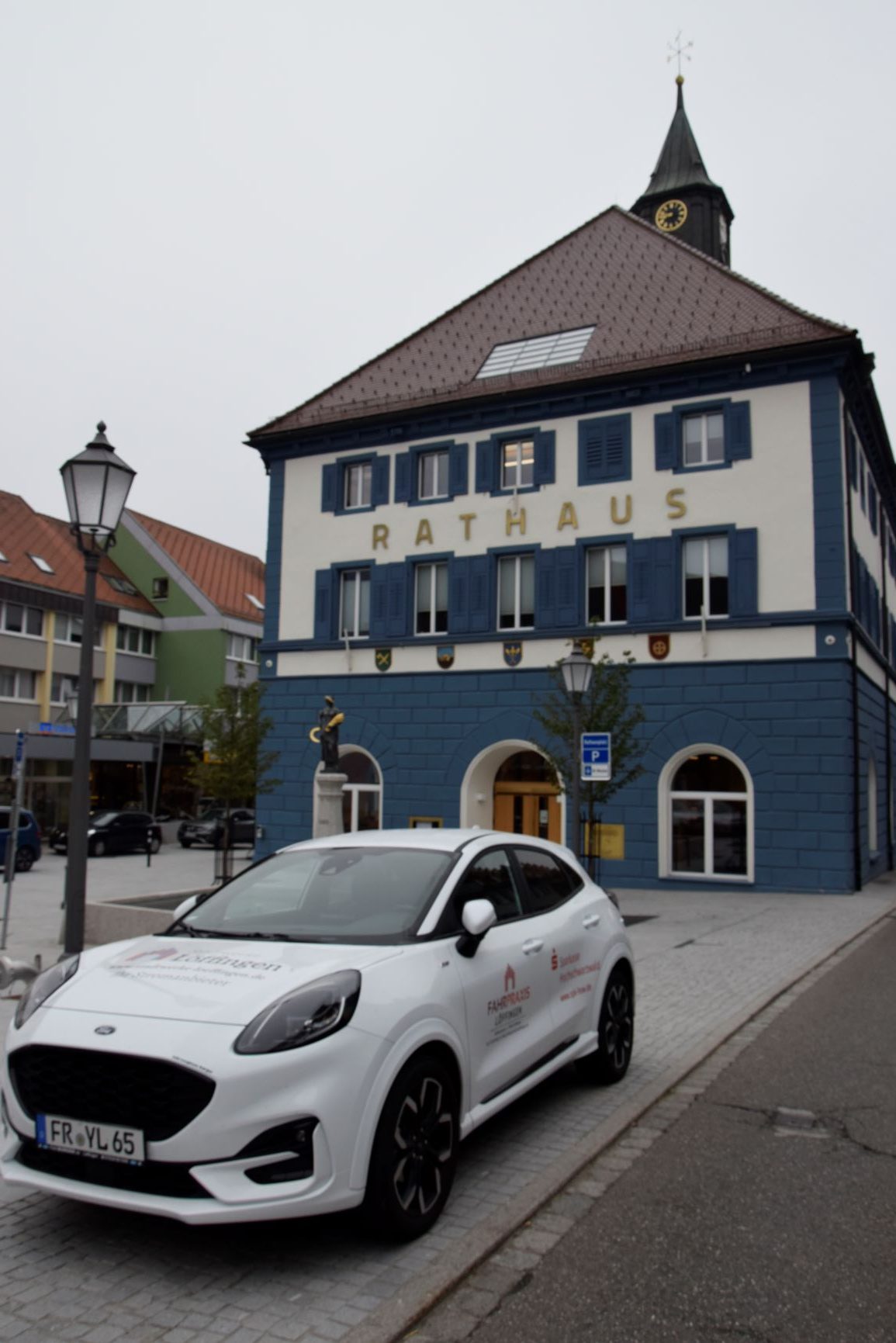“Citizen Taxi”

The project “Citizen Taxi” focusses on an improvement of the mobility of elderly people. To this end, the municipal government decided to buy a hybrid car. The car will be driven by voluntary drivers each day from Monday to Friday. The project starts in April 2020. For inhabitants of Loeffingen the service is free.
The distances that can be covered by the “Citizen Taxi” are restricted within a radius of 20 kilometers. The citizens are able to get to the next lager cities, Donaueschingen or Neustadt. Announcements can be made to the citizens’ administrative office two days before the journey by telephone, fax or e-mail. Passengers will be picked-up and taken back to their front doors. It is also possible to transport two or three citizens. Social contact is desirable.
Many citizens are interested in being a voluntary driver and have already attended a first aid course end of October 2020. That is a good sign and a necessary condition for the success of the project. The result of a current citizen survey in Loeffingen shows that many residents wish for better mobility offers. Therefore, it is to assume that many inhabitants are pleased with the new service. As soon as the “Citizen Taxi” has started, the number of passengers will be checked for gaining an impression of the demand for the service. High numbers can be seen as evidence of success. An evaluation of the “Citizen Taxi” could be carried out by means of GPS data recording of the routes. This would facilitate a better understanding of the mobility needs of citizens in Löffingen. As a result, an extended mobility concept can be adopted according to the needs of people in Löffingen.
 Applicable in rural, non city areas
Applicable in rural, non city areas
 Municipality
Municipality Elderly
Elderly April 2020 - ongoing
April 2020 - ongoing
Implementation
Key conditions for success
Key conditions for success in Loeffingen was the willingness of the citizens, who know their ways around in Loeffingen, to participate in the project. Another prerequisite is that acceptance for the "Citizen Taxi" is created so that older people in particular take advantage of the offer. Only if the locals see the advantages of a project, a project will be successful.
Key steps for activity implementation
1) Analysis of needs through a group of stakeholders 2) Information meeting for citizens 3) Meeting of the honorary drivers to plan the timetable 4) Ensure that the service is commonly known 5) First aid training for voluntary drivers 6) Evaluation of driving practice through route tracking via GPS
Dificulties encountered
The start of the "Citizen Taxi" had to be postponed until further notice due to corona crises.
Resources needed
The purchase of the car was a cost-intensive decision. Nevertheless, the most important resources for this project are the citizens, who work as voluntary drivers. For security reasons, the voluntary drivers had to pass a little medical checkup successfully. The costs for the checkup were paid by the municipal government. Furthermore, the voluntary drivers had to complete a first aid course. To be able to follow the routes of the "Citizen Taxi" in the future, a GPS device must be purchased and installed in the car. To be able to follow the routes of the "Citizen Taxi" in the future, a GPS device must be purchased and installed in the car.
Would you like to know more?
Contact the project authors for more information about project implementation, resources, planning and impact.
Jonas Rakelmann; Anna Beyrle
rakelmann@rvso.de
